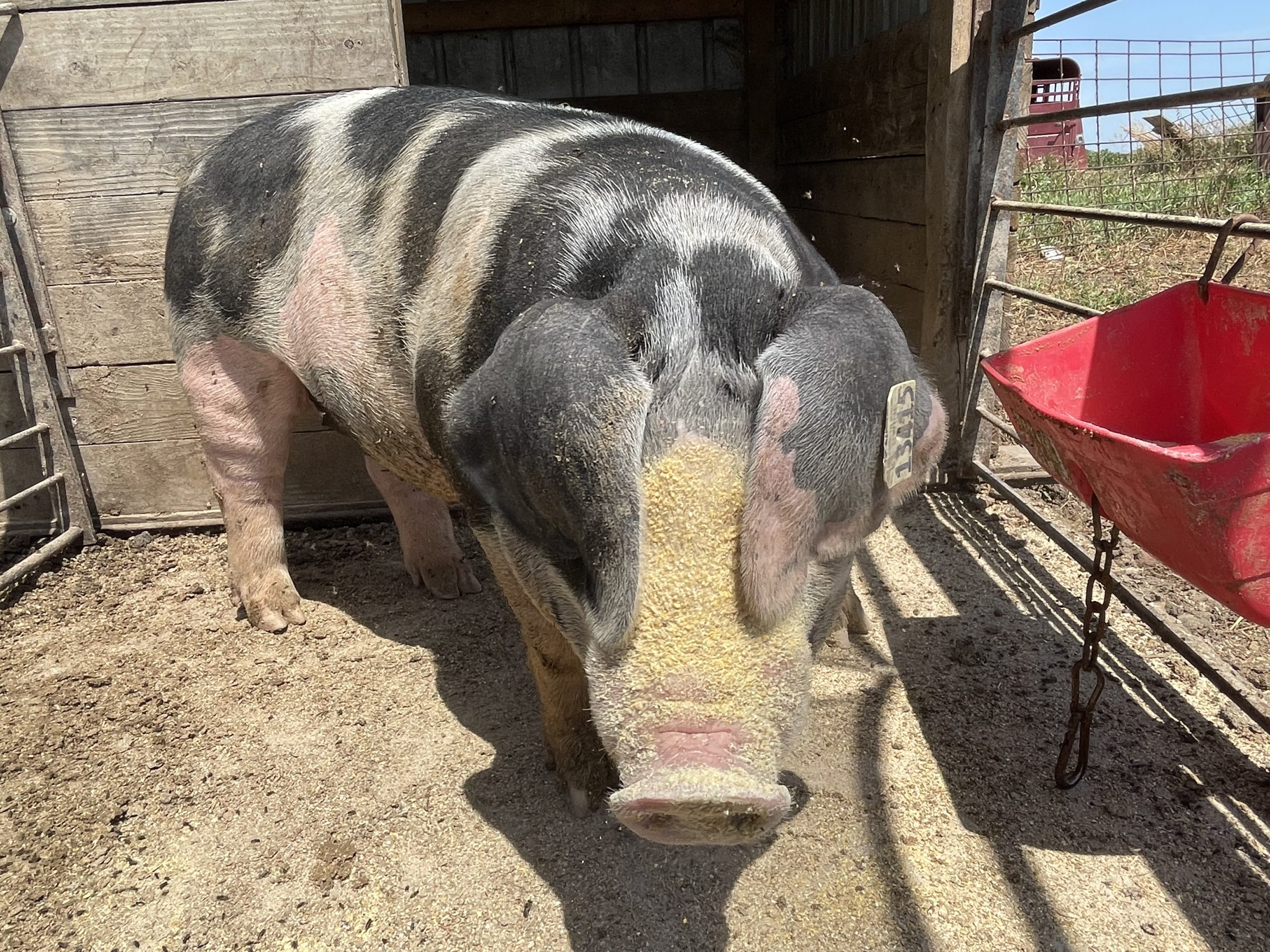Seaboard Foods receives permitting for two swine production facilities in Ford County

Ford County Commissioners approved Resolution No. 2023-21 at their recent monthly meeting to permit two swine production facilities in the county. Commissioner Chris Boys and Chairman Shawn Tasset approved the resolution, while Commissioner Kenneth Snook voted no.
According to a Seaboard Foods fact sheet, the resolution approved company ownership of two hog-gilt development farms in Ford County, Kansas. The farms will be located in the southeast part of the county, east of Bucklin. Seaboard Foods is not planning any farms in Ford County beyond the two permitted.
Two barns will sit on approximately 7 acres of land total, with the barns housing approximately 2,500 gilts weighing between 45 to 300 pounds. Animal waste will be managed within the barns and no outdoor manure treatment will be built. Eight-foot deep concrete pits will be under the barns’ slatted floors. Manure will be managed and treated in the pits until it is land applied during the growing season on agricultural land at agronomic rates.
According to the factsheet, the facility will meet or exceed all regulatory distance setbacks from wells, occupied residences, and municipalities, etc. Seaboard representative Jennifer Nelson expects approximately 16 trucks per month associated with animal movement and feed delivery. Manure generated at the farms will contain “valuable nutrients that can be used as natural crop fertilizer to replace commercial fertilizer,” the material stated.
Seaboard Foods will closely manage land application of manure to assure compliance with the Kansas Department of Health and Environment regulations. Typical manure application process involves manure being injected into the surface of the soil.
Each farm will use approximately 15-acre feet of water per year. Seaboard Foods will purchase existing water rights and is not planning to seek permits for new water rights.
Economic benefits include property taxes, opportunity to contract manure application and other community relationships, and one to two additional jobs.
Local response
In a Dodge City Daily Globe article by Andrew Evans from July 2023, Snook noted he was concerned with odor from the farm and how much water—5 gallons of water per day according to Nelson—each animal would consume.
“We have a problem with water here—before my life is over, we will run out of water in Ford County,” Snook said. “We have a cheese factory and at least two dairy farms coming that are going to suck up water.”
According to Nelson, Seaboard’s Iowa facility has wastewater treatment systems in place and operations employ water conservation practices to minimize water consumption on their farms. They’ve also worked to improve the smells coming from the farms. A smaller operation would have minimal odor.
Ford County farmer Leroy Vice was quoted in the Globe article, showing his support.
“The odor won’t be as strong as Ford County Feeders, so I support moving forward on this,” Vice said, who lives near the proposed farms.
According to the article, Vice expects the hogs to consume crops from area farmers and eventually the manure would be returned to the land.
Commission approval is the first step in the process Seaboard must complete before it seeks authorization to build.
Seaboard Foods LLC is a pork production company that owns and operates hog farms and animal feed mills in five states—Kansas, Colorado, Oklahoma, Texas and Iowa. The hogs raised on their farms supply the company’s fresh pork processing plant in the Oklahoma Panhandle. In Kansas, Seaboard Foods currently owns approximately 155 farms in southwest and western Kansas, located in Stanton, Grant, Gray, Morton, Stevens, Wallace, Greeley, Wichita, Scott and Kearny counties. All of the Kansas farms are permitted by the KDHE and water use is permitted by the Kansas Department of Agriculture.
Kylene Scott can be reached at 620-227-1804 or [email protected].

